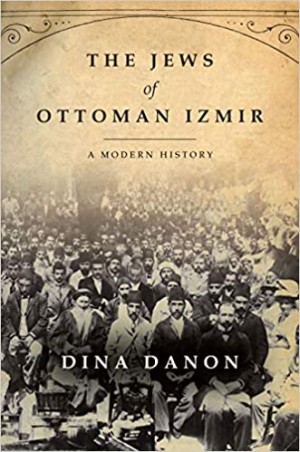In his ambitious new history, The Jews of Edirne: The End of Ottoman Europe and the Arrival of Borders, Jacob Daniels challenges two popular yet contradictory conceptions of Jews living in the late Ottoman Empire and the early Turkish Republic. In keeping with a tragic view of Jewish history, the first notion posits that the empire’s borderlands became a deadly place for its Jewish inhabitants. In contrast, the second misconception highlights the positive experience of the Jewish community in the borderland in comparison to its Christian and Muslim neighbors. By focusing on the period between 1908 and 1934, Daniels demonstrates the agency exhibited by the Sephardic community as they navigated a difficult and volatile time.
Sephardic Jews emigrated to the Ottoman Empire after their expulsion from Spain and Portugal in the early 1500s. In 1908, one of the oldest and largest Ladino-speaking Sephardic communities inhabited the Edirne province. During the region’s agonizing shift from empire to nation-state, beginning in 1912, the Edirne province became caught in ten years of territorial disputes between the Ottoman Empire, Bulgaria, Greece, and Turkey. Horrific violence, forced population exchanges, and ethnic cleansing of Christians and Muslims accompanied these changing borders. While Jews were not the direct targets of these attacks, they lived in a constant state of fear and uncertainty as they attempted to survive in a situation where their position and identity were constantly shifting.
The Ottoman Empire organized ethnoreligious groups into millets, which were autonomous, self-governing units. Since there were no borders in the Balkan lands, ethnoreligious millets extended across regions, and the rulers did not expect group members to identify with the culture of their neighbors. They accepted cultural differences without seeing them as a problem or something to celebrate. As the paradigm began to shift toward the nation-state, cultural differences became a problem solved through assimilation or marginalization. The Jewish community’s stature shifted from millet to minority status.
Once the initial displacements of Bulgarian and Greek Christians and Muslims took place on the Edirne borderlands, other groups became targets. In 1934, Turkish mobs engaged in a week-long attack on the Edirne Jewish community. While no one was killed, the incident caused a massive exodus. Some Jews fled to Greece or Bulgaria, but the majority went to Istanbul. Today, the Jewish population of Istanbul is 12,000. No Jews remain in Edirne.
Linda Kantor-Swerdlow is a retired Associate Professor of History Education from Drew University and the author of Global Activism in an American School: From Empathy to Action. She is currently freelancing and reviews books and theater.





